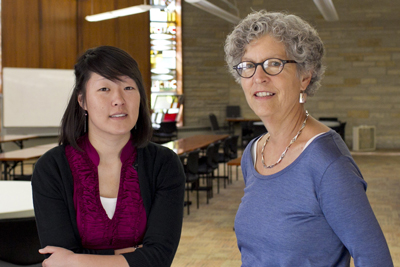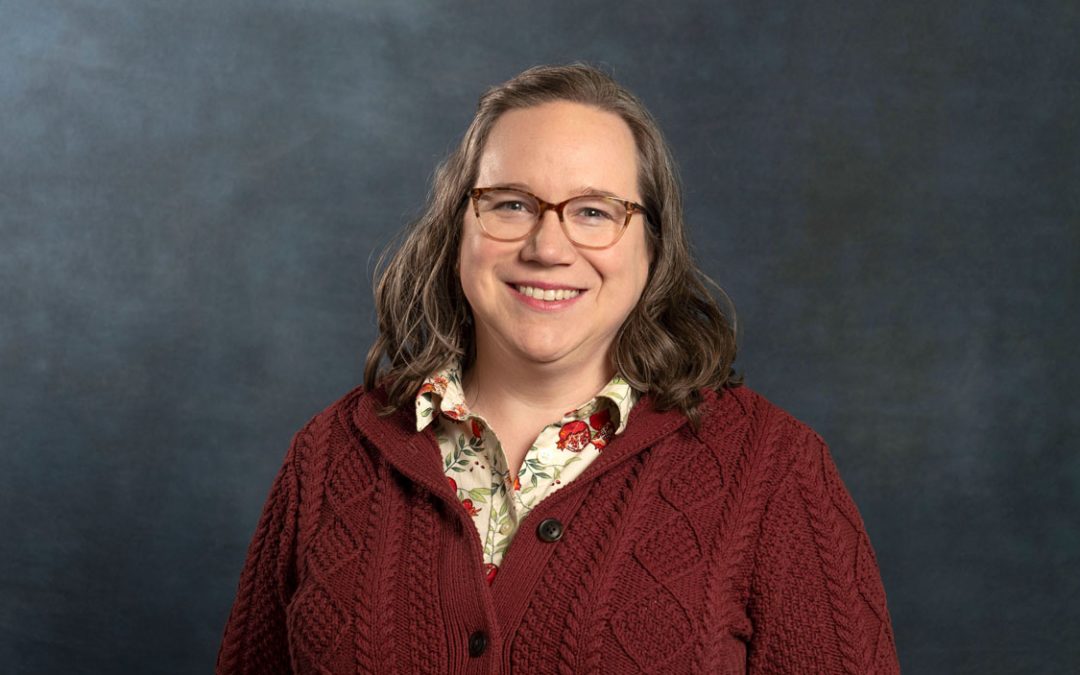
UMSL alumna Amy Bopp (left) and Lois Pierce, director of the School of Social Work at UMSL, are completing a four-year study looking at the Jefferson County Family Drug Treatment Court. (Photo by August Jennewein)
Drug and alcohol addictions wreck many lives each year, and the staggering numbers of families who are effected in Jefferson County, Mo., continues to grow.
Lois Pierce, director of the School of Social Work at the University of Missouri–St. Louis, and Amy Bopp, who earned a master’s degree in social work from UMSL in 2011, are completing a four-year study, which looked at the Jefferson County Family Drug Treatment Court. The program is for offending parents whose children have been removed from their custody due to an arrest involving drugs or alcohol. It offers them the chance to participate in a yearlong, intensive program in order to reunite their families.
“We looked at the types of drugs parents were using, typically methamphetamine … but heroin is also becoming more popular in that area,” Bopp said. “And then we looked at if they completed treatment offered by the court and were reunited with their children.”
The study found that parents who participated in the FDTC were seven times more likely to have their child reunited with them than treatment as usual, and that families in which the parents participated in Child-Parent Relationship Therapy, another treatment program, were 2.4 times as likely to be reunified. Additionally, children whose parents participated spent 200 fewer days in the custody of the court’s Children’s Division
Pierce said she was happy with the results of their findings.
“I really didn’t think that many parents who had their children removed because of substance abuse could get them back,” she said. “It is a serious addiction, and hard to break, and the program is very intense. They really have to have the support of their family helping them as well as employers and others to really make it work.”
Bopp added that the majority of the parents participating in the program realized their mistakes and wanted to do right by their children and to give them a better life. They also knew they had to do it for themselves too.
“A lot of people say they have to do it for their kids,” she said. “But really, like one of the participants said, it’s sort of like when you’re on an airplane and they tell you in case of an emergency to put your lifesaving device on before you put the child’s on. It’s like that because unless you help yourself, you can’t help your child.”
Pierce said she’d like to see more research done on this topic and in other areas of Missouri.
“Programs like these are important,” she said. “And reuniting parents with their children and giving them the tools needed to be productive members of society is an essential part of any child protection agency.”














